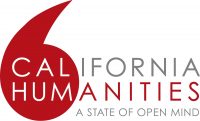A documentary about a Sikh American who ran for Congress and won, in 1956
About the film
In 1956, two candidates who couldn’t have been more different from each other– a wealthy WWII aviatrix and a local farmer of Indian descent– competed for a seat in Congress. The highly entertaining drama that ensued engaged an 80% voter turnout, and Dalip Singh Saund (D) defeated Jackie Cochran Odlum (R) to become the first-ever Asian, first Indian, and first Sikh American member of the U.S. Congress. He represented California’s 29th District for three consecutive terms. SAUND vs COCHRAN is a nonpartisan documentary in development about this important milestone in American democracy.
“Seldom if ever has the American melting pot cooked up a spicier election dish than the contest now simmering in California’s 29th Congressional District.”
‘BILL BECKER, ASSOCIATED PRESS – MAY 5, 1956’
Share stories about 1956 America, connect us to people who knew Saund or Cochran or anyone who voted in 1956 (they’d be in their 80s today).
This is an independent media project currently in development. 100% tax-deductible contributions to this documentary film can be made through our fiscal sponsor, the Center for Independent Documentary. Click the QR code for information on how to donate by credit card or by check.
In 2026, you will hear a lot from America250– an initiative working to engage every American in the 250th anniversary of the signing of the Declaration of Independence. This is the perfect opportunity to tell the story about Dalip Singh Saund– our first Asian American congressperson.
We are seeking partnerships with organizations working to increase civic participation and to screen the film for broad audiences.






